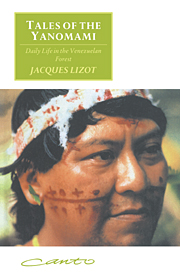Summary
This ethnography is novel both in form and content. Whereas most American ethnographers have presented analyses drawing on field data to support their arguments, Lizot simply presents the data, in story form, and rarely uses analysis. The absence of explanation of his intent and absence of his field methods forces the reader to search for interpretation within the stories themselves. At first glance, Lizot's stories resemble the ethnographic texts that anthropologists record in the field rather than any of the many kinds of syntheses they have published as ethnographies.
This book can be read at many levels: It can simply be enjoyed, much as a loosely woven novel about a strange group of people may provide an interesting diversion; it can be explored as a challenge to our definition of ethnography and our view of how best to transmit knowledge about the lives of one group of people to members of a very different group; and it can be read as a source of information about the society and culture of the Yanomami.
Lizot's narrative style is easy to read and entertaining. He introduces the reader to many unforgettable individuals and to the affections and tensions that may either bind or divide them. An unusual dimension is Lizot's emphasis on sexual liaisons, particularly among adolescents and young adults. The thoughts, dreams, and attractions of the characters are interwoven in stories about their affairs. Sexuality as experienced by Yanomami from childhood to old age, particularly Yanomami men, is revealed through dozens of incidents.
- Type
- Chapter
- Information
- Tales of the YanomamiDaily Life in the Venezuelan Forest, pp. vii - xiiPublisher: Cambridge University PressPrint publication year: 1991



